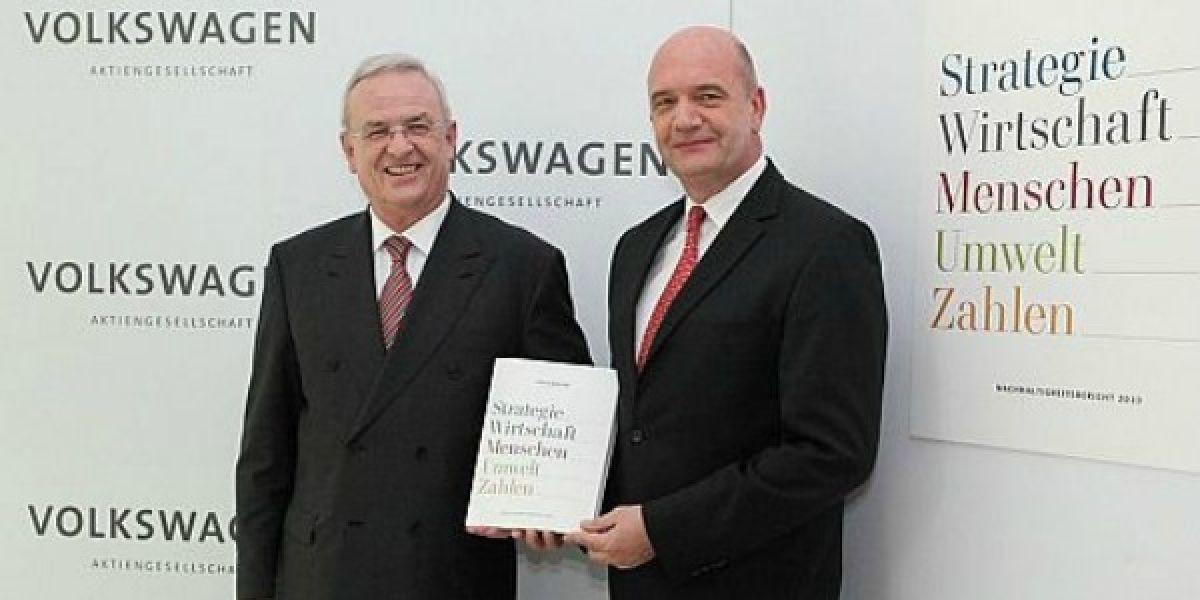The Volkswagen Group is still striving toward becoming the leader in the production of environmentally compatible automobiles. This week, VW Group published its latest sustainability report, which provides information on the progress made in 2013 in the areas of economic, environmental and social sustainability.
To provide an explanation of how Volkswagen measures, controls and improves its progress in achieving the desired sustainability, the report includes details from several information areas. These include the broad range of efficient, affordable and practicable fuel and powertrain technologies; the expansion of sustainability and supplier relations; and the implementation of uniform global quality standards for specialist training and employee qualifications. Topics that are covered in detail include the role of the company’s modular toolkit strategy in the achievement of emission targets; the export of the dual vocational training model throughout the world; the contribution of Volkswagen accident research to road safety; and the role of local added value in regional development and economic growth. Prof. Dr. Martin Winterkorn, Chairman of the Board of Management of Volkswagen Aktiengesellschaft (pictured above, left, with Bernd Osterloh) commented on the purpose of the report:
This report is a business card of our Group. It demonstrates our long term motives and motivation on the basis of clear figures and many examples – we are committed to responsible action with a long-term orientation. At Volkswagen, we do not want to achieve rapid success at the expense of others. We aim for solid, sustained growth that brings benefits to everyone: customers and investors, the environment and society, and last but not least our employees.
Winterkorn added that sustainability meant “quality of life and future orientation” for Volkswagen and was a “core element of the Group’s business” and not simply an “alibi.”
Additionally, Bernd Osterloh, Chairman of the General and Group Works Council of Volkswagen Aktiengesellschaft, stated: “Our responses to environmental and climate protection challenges increasingly have a decisive impact on employment and the future security of jobs. As employee representatives, our role is also to provide impetus with a view to bringing forward projects and changes that aim for greater environmental compatibility.”
In the reporting year 2013, energy consumption per vehicle produced was 12.5% below the figure for the base year of 2010, while CO2 emissions were 19.5% lower. VW Group takes one-third of its electric power from renewable sources. Almost two-thirds of vehicles delivered in Europe by the Volkswagen Passenger Cars and Commercial Vehicles, Audi, SEAT and ŠKODA brands had emissions below 130g CO2/km in 2013. Experts from VW Group brands work together on life cycle engineering projects in order to develop standardized methods for harmonized life cycle assessments of vehicles throughout the organization.






Comments
VW obviously knows how to
Permalink
VW obviously knows how to view from the buyers prospective...something good, long lasting, reasonable to operate, and not hard on the ecological side. :)
Sounds like a good deal for
Permalink
In reply to VW obviously knows how to by shirl (not verified)
Sounds like a good deal for everyone, the way you describe it--just like they said, right?